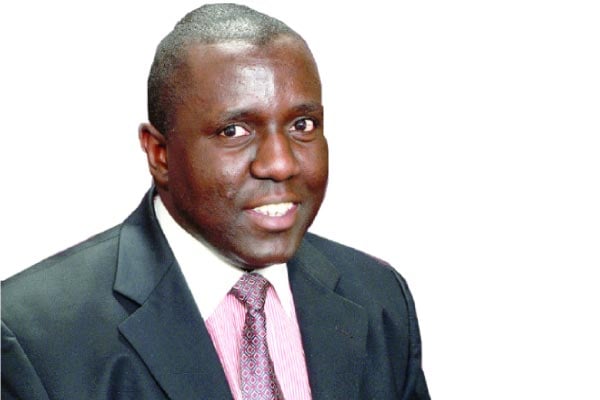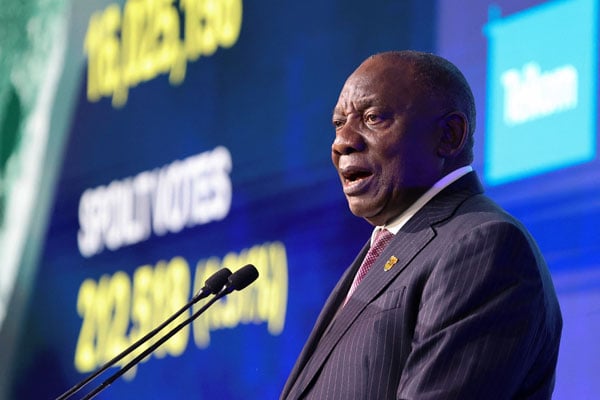
Author: Mr Karoli Ssemogerere is an Attorney-at-Law and an Advocate.
The shock on the political landscape of ANC’s loss of its parliamentary majority continues. ANC’s leadership has written a white paper apportioning the blame for their loss.
ANC is proposing a right-left coalition with the Democratic Alliance that would command a strong parliamentary majority of at least 240 seats.
There is a lot of soul-searching going on, especially the three million votes deficit, two million of which went to Jacob Zuma’s MK party. DA politically has inherited the legacy of the Boers and the Nationalists. It is described as the party of the privileged. Interestingly, the Western Cape, not Gauteng that is home to Johannesburg is deemed well-run, efficient, and now very prosperous even though in its environs are some of the poorest communities in South Africa.
In a coalition, there must be a sufficient difference of ideas to start a negotiation on developing a common platform. Inside the ANC, the South African Communist Party, is saying no to this arrangement.
Of the two ANC splinter parties, MK, led by former president Jacob Zuma and EFF led by Justus Malema, which between them would command a majority in the National Assembly, the ANC is smelling its deathbed.
The briefing notes say any attempt to bring them back into the fold will lead to more conflicts inside ANC. In any event, coalitions at the regional level with EFF have been marked by instability.
In 2008, in Zimbabwe, ZANU PF offered MDC two key positions, that of prime minister and minister of finance. The cohabitation ended badly for MDC. It ended up with two factions and never recovered. In the same year, Mwai Kibaki entered into a Government of National Unity with his principal erstwhile foe Raila Odinga as prime minister. The cohabitation ended with his retirement in 2013. Mr Odinga has run three times for president, ever since, 2013, 2017 and 2022, each time the ultimate prize has eluded him even though he is credited with Kenya’s liberal political dispensation.
At the core of Kenya’s coalition politics which are now much more developed, some parties are good at supply, others good at leadership. Raila, unfortunately, excelled at the supply game, propping up Mr Moi in 1997, Kibaki both in 2002 and 2008, and later Kenyatta needed the same support in his last term.
ANC members are wary of seeing a repeat of the 1994 coalition agreement where a Nationalist Party member was a second deputy president and controlled the ministries of agriculture and mines. Coalitions demand portfolio balance. The price of passing on the deputy presidency for the DA will be at least two or three key portfolios, any mention of which is anathema to the ANC rank and file.
It is anyone’s guess that finance and foreign Affairs would be in the mix. Markets would cheer, but any talk of more fiscal tightening and end of ANC’s generous social programmes would hurt the base and the wildly cheering opposition parties of EFF and MK with just under 90 seats in the National Assembly would jeer at ANC’s every move. In Uganda, the President is heard in total silence when he delivers his State of the Nation Address. That is not the case in South Africa.
In Kenya, after 1992, Mr Moi was actually a member of parliament. He had to face head-to-head the leaders of the political parties he had defeated in parliament: Mwai Kibaki (DP), Kenneth Matiba (FORD-Asili), Jaramogi Oginga Odinga (FORD) and George Anyona (KSC). He quickly understood the limits of presidential power.
Mr Ramaphosa, Mandela’s preferred heir, is independently wealthy. He has some of the reluctance to politics that Mr Thabo Mbeki had. He is reluctant to serve red meat. The ANC is hoping it can serve him up to the public for a second and final term. In that term, he would delicately have to decide to continue prosecutions of Mr Zuma and Mr Malema without appearing vindictive.
The loss of the purse and patronage would limit his reach. But ANC will share with other parties the responsibility for high unemployment that drove young people in record numbers to the polls.
Mr Ssemogerere is an Attorney-At-Law and an Advocate.
[email protected]
